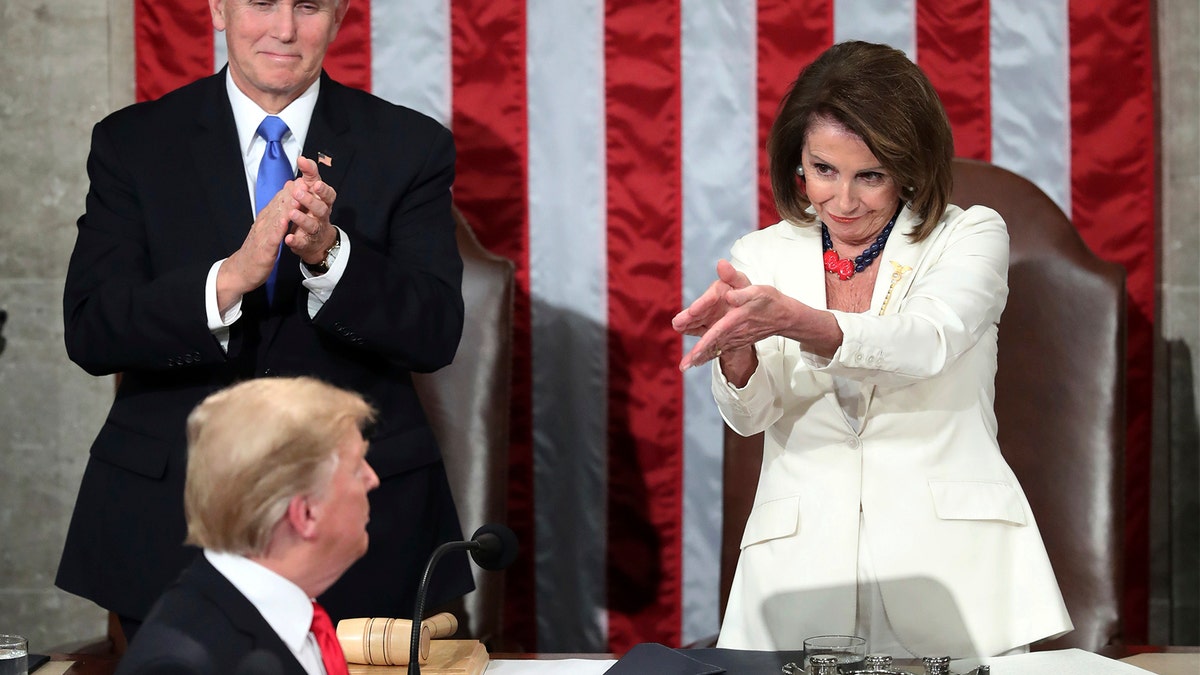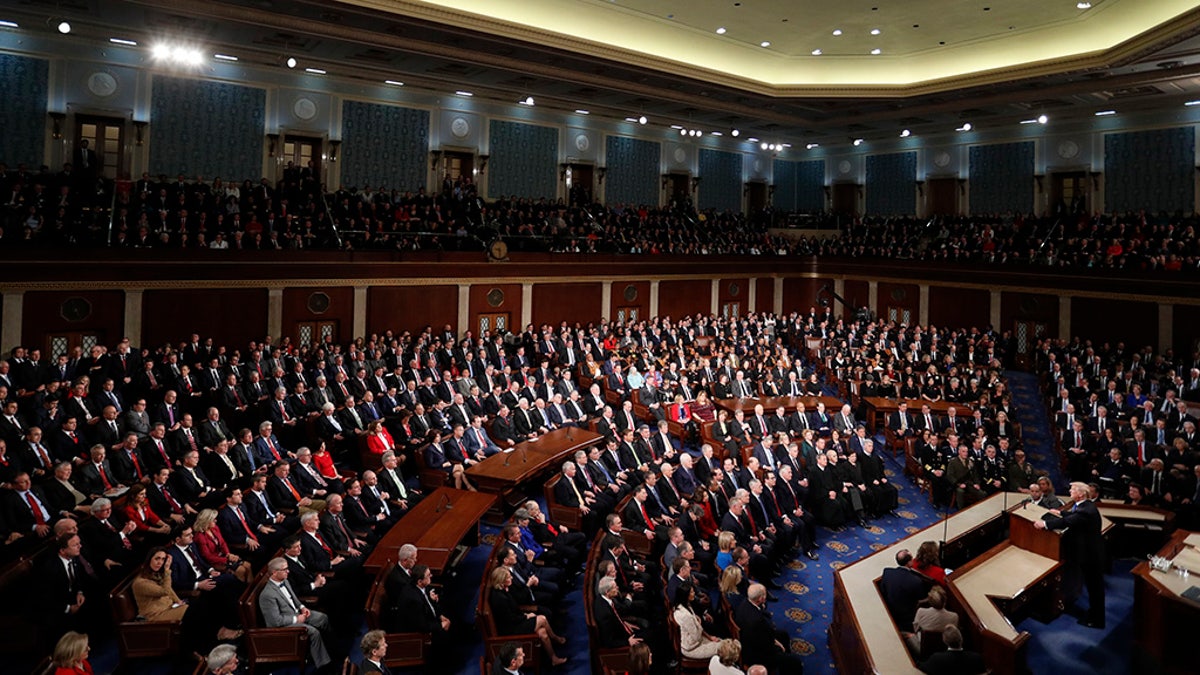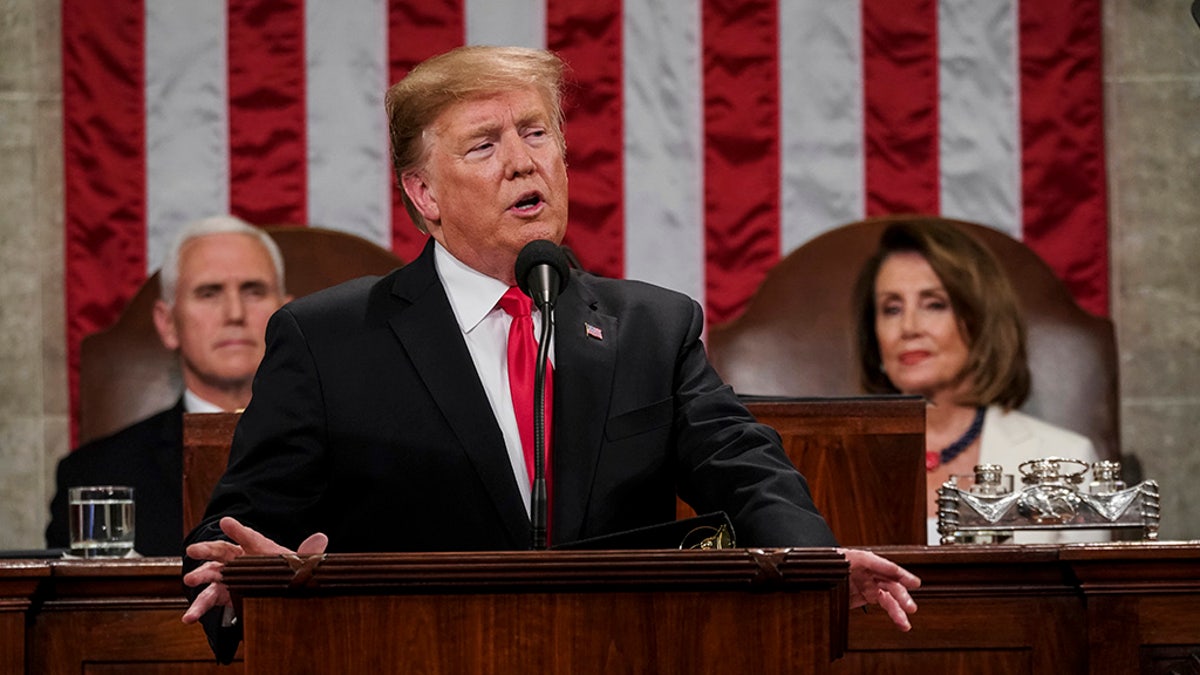President Trump prepares for State of the Union amid impeachment trial
The 2020 State of the Union will be only the second time in U.S. history where an impeached president will give a State of the Union address. President Trump is scheduled to address the nation and Congress on Feb. 4, 2020.
President Trump is slated to give his third State of the Union address – and his fourth speech to a joint session of Congress – amid a highly partisan atmosphere in Washington as his impeachment trial continues to roil the Senate.
The State of the Union is a custom in which the president normally gives an update on the economy, national security and other key points while laying out his legislative agenda and priorities for the coming year.
The State of the Union was originally just a written report that the president submitted to Congress, but in 1913 President Woodrow Wilson began the practice of making a public address to Congress in a tradition that continues to this day.
Controversy has surrounded Trump’s previous State of the Union addresses: Last year, for example, the address was delayed until February amid a government shutdown. This year, it comes in the same chamber that voted in December to impeach him.
Below is a brief outline of some key facts to know before tuning in to the 2020 State of the Union address.
When is it?

President Donald Trump turns to House Speaker Nancy Pelosi of Calif., as he delivers his State of the Union address to a joint session of Congress on Capitol Hill in Washington, as Vice President Mike Pence watches, on Feb. 5, 2019. (AP Photo/Andrew Harnik)
Trump is slated to give his address on the evening of Feb. 4.
House Speaker Nancy Pelosi, D-Calif., sent Trump the formal invitation to give the address on Dec. 20 – just two days after the House voted to impeach Trump for abuse of power and obstruction of Congress. It will be only the second time in U.S. history where an impeached president will give a State of the Union address – the first given in 1999 by Bill Clinton.
The address will also take place one day after the Iowa caucuses, with Democratic presidential hopefuls vying to claim the first prize in the primary calendar. The four senators seeking the nomination – Democrats Amy Klobuchar of Minnesota, Elizabeth Warren of Massachusetts and Michael Bennet of Colorado, and Independent Sen. Bernie Sanders – are expected to be in attendance at the State of the Union, as they are already required to be in Washington for the impeachment trial.
PELOSI, DAYS AFTER IMPEACHING PRESIDENT, INVITES TRUMP TO DELIVER STATE OF THE UNION ADDRESS
Where will it be held?

President Donald Trump delivers his State of the Union address to a joint session of the U.S. Congress in 2018. REUTERS/Jonathan Ernst
Following tradition, the State of the Union will take place in the chamber of the House of Representatives inside the U.S. Capitol building in front of the full House and Senate. Supreme Court justices and the Joint Chiefs of Staff are usually in attendance, along with various guests of the president and lawmakers.
Where can I watch it?

President Donald Trump gives his State of the Union address to a joint session of Congres in 2019 at the Capitol. (Doug Mills/The New York Times via AP, Pool)
The speech will be broadcast on Fox News Channel as well as local Fox affiliates. It is slated to start at 9 p.m. ET. It is unclear how long Trump will speak, but his 2019 address lasted an hour and 22 minutes.
CLICK HERE FOR THE FOX NEWS APP
Who is on the guest list?
The president's guest list has not been released. The White House usually invites several people to sit with the first lady in the House chamber.
Who is the Designated Survivor?
The White House hasn't said yet – though one member of the president's Cabinet in the presidential line of succession traditionally stays away from the Capitol to preserve the continuity of government in the unlikely case of catastrophe.












































